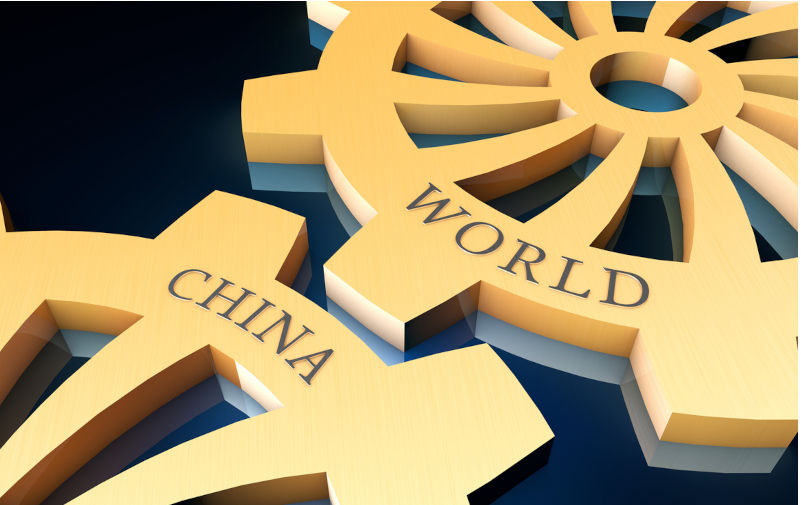Why the planet now needs China
September 20, 2025
The World Bank’s Reboot Development report has belatedly confirmed what scientists have warned for decades: humanity is breaching the safe operating limits of the Earth.
Air, water, forests and oceans, the very foundations of life are unravelling under the pressure of unrestrained growth. Six of nine planetary boundaries have already been crossed.
At the same time, the world order that presided over this destruction is itself in convulsion. The US, once the anchor of the liberal international order, is now a declining hegemon. But instead of managing decline with prudence, it is doubling down on unpredictability, militarisation and irrationality – a politics of defensiveness, rather than responsibility.
Taken together, ecological overshoot and US decline create the most dangerous conjuncture in modern history. Saving a livable planet will increasingly depend not on Washington, but on whether China can help shape a more inclusive, sustainable and safe world order.
The US as destabiliser
The second Trump presidency has stripped bare the illusions of American leadership. The US has renounced climate agreements, fuelled trade wars, blocked multilateral reforms and escalated military tensions in Asia. It spends more on weapons than the next 10 powers combined, even as its infrastructure crumbles and its climate policies oscillate wildly between administrations.
This is not simply mismanagement. It is structural decline. US power has always rested on a carbon-fuelled industrial base, global financial dominance and a vast military footprint. Each of these pillars is now eroding. And as they do, Washington increasingly lashes out rather than leads.
For the planet, this is disastrous. The country most responsible for historic emissions is also the one least able and least willing to provide ecological security.
China as system-maker
China, for all its contradictions, is now indispensable to any viable path forward. Its scale alone makes it central: nearly one-fifth of humanity, the largest share of global manufacturing and a dominant role in clean energy technologies. Beijing’s investments in solar, wind, batteries and electric vehicles have pushed costs down worldwide. Its Belt and Road Initiative, for all its flaws, at least gestures towards South-South infrastructure and green finance.
If the 20th century was the “American century”, the 21st will be one in which China’s choices set the global trajectory. That includes whether the world tips into ecological collapse or whether we begin to stabilise the Earth system.
But China’s role will not only be economic or technological. As US unpredictability worsens, countries from Africa to Latin America to Southeast Asia are already looking to Beijing for stability, investment and alternative visions of order. A “multipolar” world may be the polite label; the reality is that China is increasingly the indispensable pole.
The unresolved challenge: democracy
Here lies the paradox. To save the planet we need China’s weight. Yet China’s political system raises profound questions about democracy, rights and accountability.
A sustainable order cannot simply be authoritarian modernisation on a planetary scale. If ecological limits demand restraint, democracy is needed to decide whose consumption is restrained, whose industries are wound back, whose lifestyles are transformed. Without voice and participation, ecological transition risks becoming eco-authoritarianism: efficient, perhaps, but brittle and unjust.
Thus the great challenge of our century is not only how to avoid collapse, but how to reconcile ecological survival with democratic flourishing.
Between dependency and agency
Australia, perched between an irrational ally and an indispensable neighbour, embodies this dilemma. Canberra clings to Washington through AUKUS even as the US drifts into chaos. Yet our export dependence on China, from iron ore to lithium, is undeniable.
The lesson of Reboot Development is that the old growth model, extractive, carbon-heavy, developer-driven, is itself unsustainable. If Australia wants to thrive in a livable world, it cannot simply trade ore to Beijing while outsourcing security to Washington. It must cultivate independent capacity to align democracy with sustainability.
That means strengthening democratic institutions against capture by property developers and fossil lobbies. It means investing in public housing, clean industry, canopy cover and cultural renewal. And it means contributing ideas not just commodities to the shaping of a new world order.
A new global bargain
If China is to become the system-maker, it too must change. Its Belt and Road must green itself in substance, not just rhetoric. Its surveillance-heavy political model must find ways to incorporate deliberation, participation and rights. Its diplomacy must move beyond transactionalism towards genuine multilateralism.
Equally, the West must shed the fantasy of perpetual primacy. The US is not returning to 1945. Europe cannot wall itself off from Asia or Africa. A livable planet requires a global bargain: Chinese scale and technology, Western institutions and norms, Southern voices and demands, all woven into a more plural, sustainable order.
This is not a naïve hope. It is sober necessity. The alternative is ecological collapse amid militarised rivalry, an outcome in which democracy and prosperity alike wither.
Conclusion: democracy or eco-authoritarianism?
The World Bank has admitted that infinite growth on a finite planet is a formula for disaster. What it has not admitted is that avoiding disaster requires more than efficiency and cleaner production. It requires new political forms that combine ecological limits with democratic voice.
China will be central to this new order. But unless democracy is part of the settlement, not as a Western export model, but as a plural, evolving practice of participation and accountability, then the world we save may not be worth living in.
The task, then, is double: to survive the crossing of planetary boundaries, and to renew democracy in the process. Between ruin and renewal lies the space we must fight to inhabit. And, paradoxically, whether we succeed now depends less on Washington, and more on Beijing.
The views expressed in this article may or may not reflect those of Pearls and Irritations.

